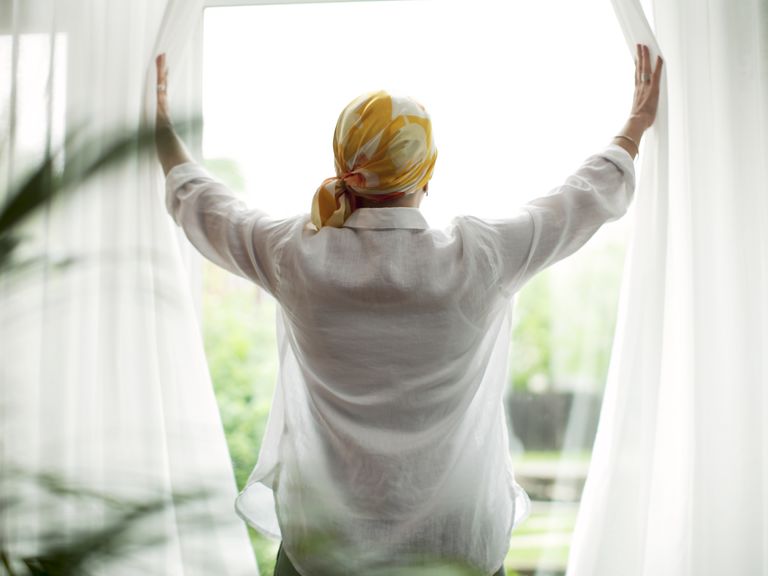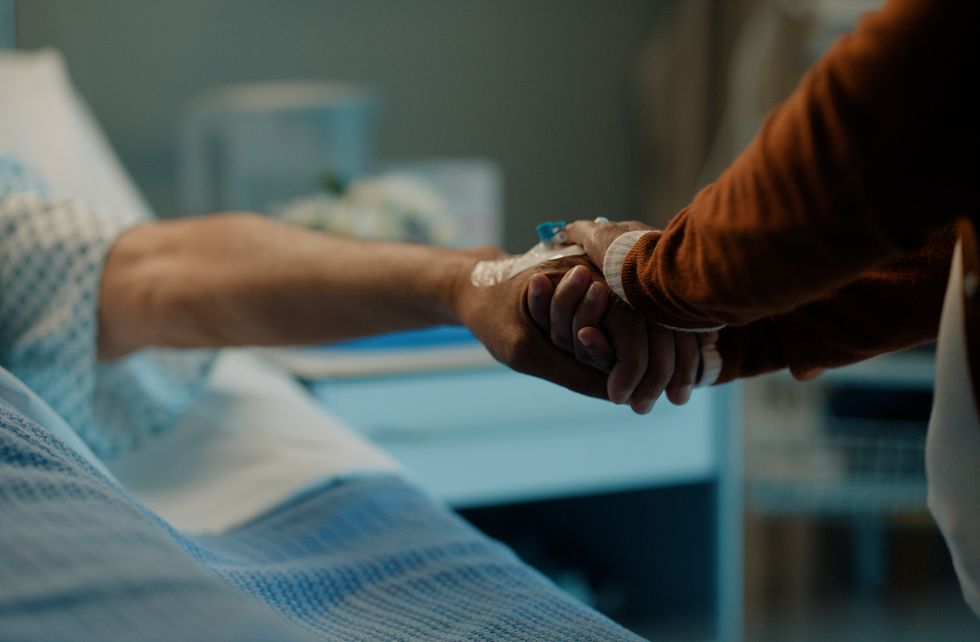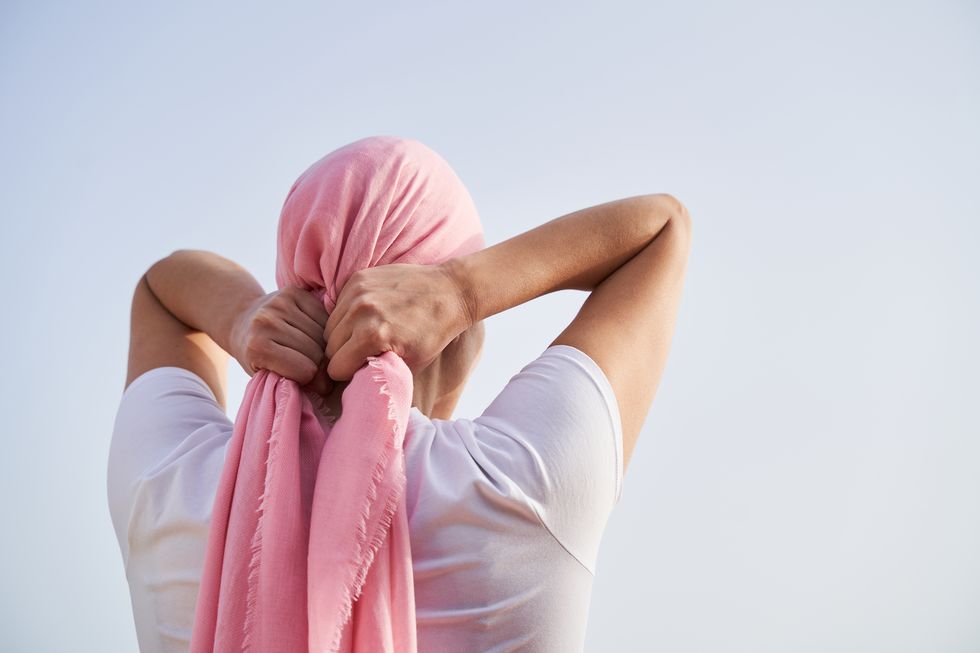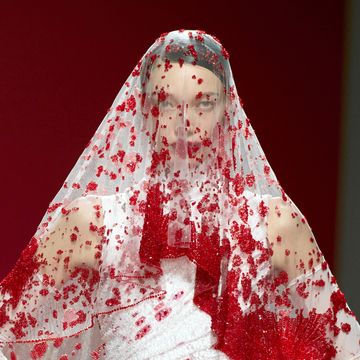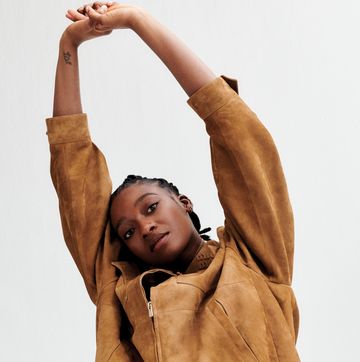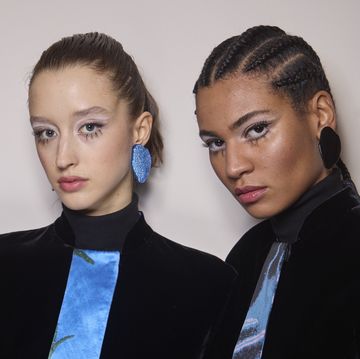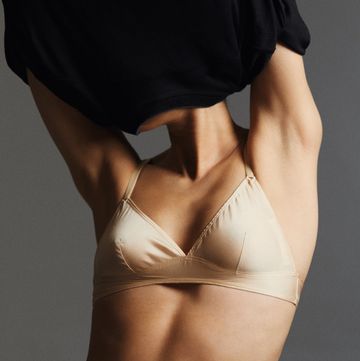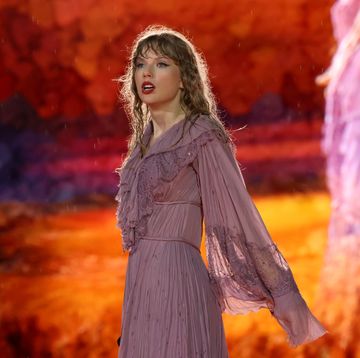It was the phone call I’d been preparing for my whole adult life. For as long as I can remember my mother has had a bi-annual, sometimes quarterly cancer scare that thankfully never amounted to anything serious. Lung, ovarian, bowel, skin, breast – every tissue imaginable has misbehaved in some way and resulted in weeks of tests, sleepless nights, and a constant Googling of symptoms.
It became a running joke; black humour was the only way to respond. If she had a random headache, we’d joke that it was probably a brain tumour. She’d watched her own mother suffer through breast and lung cancer and as a result she’d been on a never-ending high alert for rogue lumps and bumps.
So, when I finally got the call on a cool and crisp January day, it wasn’t a surprise, but the idea of something versus reality are two very different things. She’d had trouble breathing and felt weak for months. There’d been numerous rounds of tests, scans, and biopsies. We were hoping for a diagnosis of repeat bronchitis, but in the end, it turned out to be Non-Hodgkin’s Lymphoma – a blood cancer that had created malignant growths in her lungs and bowel. Stage III. Chemo. She’d lose her hair. The treatment would start in the next two weeks.
FIND OUT MORE ON ELLE COLLECTIVE
This time it was real. My mam, who I loved more than anything in the world was officially in danger. My mam, who had always been a constant in my life whether I wanted her to be or not was about to become very ill and I’d have a front row seat to all of the horrors that were about to unfold but I’d also learn unexpected lessons that would see me through the darkest times.
Over the next two weeks we made plans. I’d travel up from London to Newcastle every three weeks to be there for the chemo treatment and the immediate four days afterwards then my brother, uncle and sister-in-law would be there for the rest. In a meeting room at work, I took further calls about the details of the treatment, the expected side effects, the efficacy, and survival rates of someone her age. I wrote down all the information in my work notebook and following the call I chaired a meeting with fifteen people to review the Q3 and Q4 scheduling plans, all the while smiling and using every trick in my arsenal to avoid having a full-on panic attack in front of my colleagues.
The first chemotherapy treatment was a baptism of fire. In the room of eight, wipe clean, treatment chairs, beeping machines, and cast of visitors it was hot, noisy and there was no privacy. Deeply personal information was discussed before the beginning of each treatment, patients shouted over to each other the intimate details of their latest side effects – no one had had a normal toilet visit for weeks. Most of the patients were women, similar in age to my mam, they’d all lost their hair, they all scrolled through phones encased in leather covers that opened like books and snapped shut when they’d finished reading about lost cats and neighbourhood disputes on Facebook.
The NHS nurses were all unwaveringly upbeat, funny, kind and, most importantly, gentle. They filled the room with their laughter, their Geordie banter, and their infectious energy. Working under immense pressure for criminally low pay, they each walked the fine line between acknowledging the seriousness of the situation and making you feel like everything was going to be OK.
They played the local radio station on a tinny portable radio that dropped in and out of signal. An 1980s soundtrack of Phil Collins, Whitney Houston, Culture Club and Tears for Fears punctuated the already chaotic space, and I thought about the car journeys with my mam when I was little, when this music had played, and she’d been the caregiver. As I held her soft hand and watched the drip of Vinblastine slowly filter into her blackening veins I was confronted with our new reality. A reality we’ll all inevitably face where someone you love will become desperately ill and the only thing you’ll be able to do is hold their hand as they suffer.
Over the next six months I spent an inordinate amount of time on LNER trains travelling between London and Newcastle. At my mam’s house I catalogued the 12-15 different drugs she needed to take each day on a spreadsheet that my brother printed off, I batch cooked shepherd’s pie to freeze for her, I hoovered, I watched her try on different turbans to cover her impossibly shiny head, we talked about the various crippling side effects she suffered from each day. We watched comforting Friends reruns and ate ice cream as she lay on the sofa under a Slanket, rubbing her aching wrists where the toxic chemo drugs had decimated her veins and, in the morning, I’d stand in her shower silently weeping as I tried to process what was happening.
Work was supportive, I told the people who needed to know, and for the most part, I was glad of the distraction. But I was relatively new to the company, and I don’t know if you’ve ever tried to make a good impression when you’re in the midst of your worst nightmare, but your vibe can be a little off. My co-workers would tell me of their weekends spent at parties in Peckham or trying out new restaurants in Soho and I’d pretend I hadn’t just shaved my mam’s hair off and watched her writhe in agony as her cells were killed off by blasts of toxic drugs. At lunchtime, I’d sit in the cooling marble halls of Tate Britain and listen to Headspace or Calm meditations, trying to calm my breathing whilst dreading my phone ringing with bad news or the time when I’d have to go back into the office and function like a normal human being.
The whole period pulled into focus the ridiculous charade of work; the way we all conceal our individual needs, personal struggles, and caring responsibilities in order to be considered good at our jobs. We all need to earn a living (a disgusting term in itself) and play the game to a certain extent, but the feverish ambition that had once driven me and the importance I’d put on professional success began to feel pointless and empty.
In between the delicate balance of life and death I came to appreciate the things that are important – a sense of humour, gratitude for the small things in life, the love and care of friends and family, the group chat, and the incredible work of the NHS. I still remember the simple pleasure of the Ambrosia custard pots the nurses used to bring round at lunchtime on the ward. The short walks I’d take with my mam where we’d cry with hysterical laughter over the smallest thing – deliriously happy to be alive and able to sit in the late spring sunshine together. The take-aways we shared at my brother’s kitchen table with my teenage nieces. My husband booked a trip to Devon over Easter, and I taught my daughter how to skim stones, something I know will always be one of the happiest moments of my life.
I came to appreciate that these seemingly inconsequential moments shared with the people we love make up the fabric of our lives and are what matter most. Not the emails, presentations, and professional accolades.
Now, my mam is in remission. Her hair has grown back into a beautiful and stylish crop. Her eyebrows and eyelashes are back. She no longer has crippling jaw or chest pains and the only medicine she takes is the occasional paracetamol. She’s back at the HIT dance classes she loves so much, she goes to her art group on a Friday morning, and she’s booked a holiday with her cousin in May to the Italian region she’s always wanted to visit.
For her, for now, cancer hasn’t been the death sentence we feared it would be. Hers is the story I was desperate to find when I was googling cancer survival stories at 2am, looking for someone who came out the other side because I’m painfully aware of what the alternative looks like.
It was one of the worst times in all our lives but also an opportunity to come face-to-face with the finite and precious nature of life. The moments of joy and sweetness have become heightened and richer since because that’s the heartbreaking reality – that the good will always exists alongside the bad. The only thing we can do while we’re here is have a laugh, relish the custard pots (or your own equivalent) and really dig into those good times because life is short, and the brutal truth (that we like to avoid) is we’re all going to die, so you might as well enjoy it, and each other, while you can.
ELLE Collective is a new community of fashion, beauty and culture lovers. For access to exclusive content, events, inspiring advice from our Editors and industry experts, as well the opportunity to meet designers, thought-leaders and stylists, become a member today HERE.
